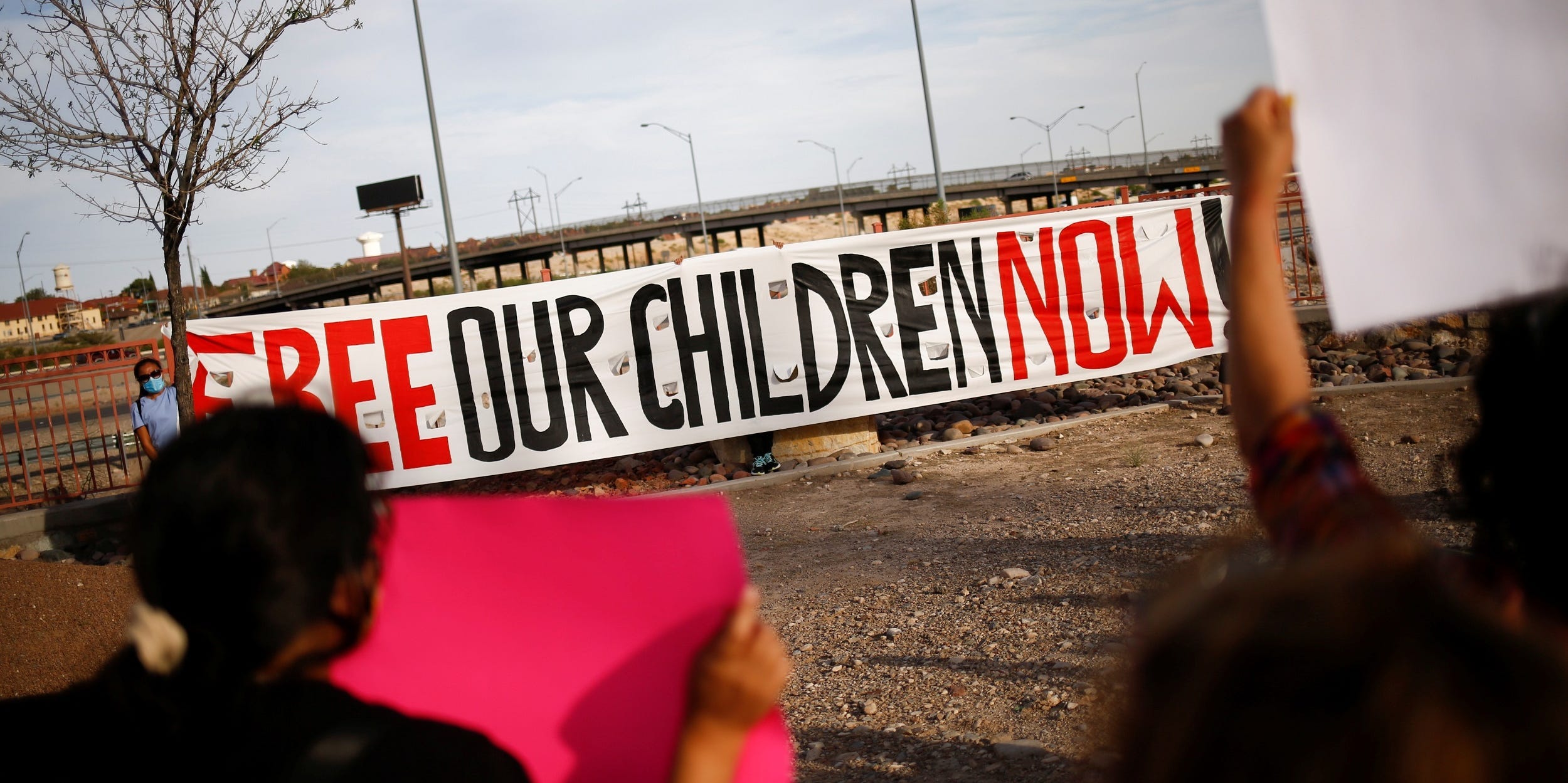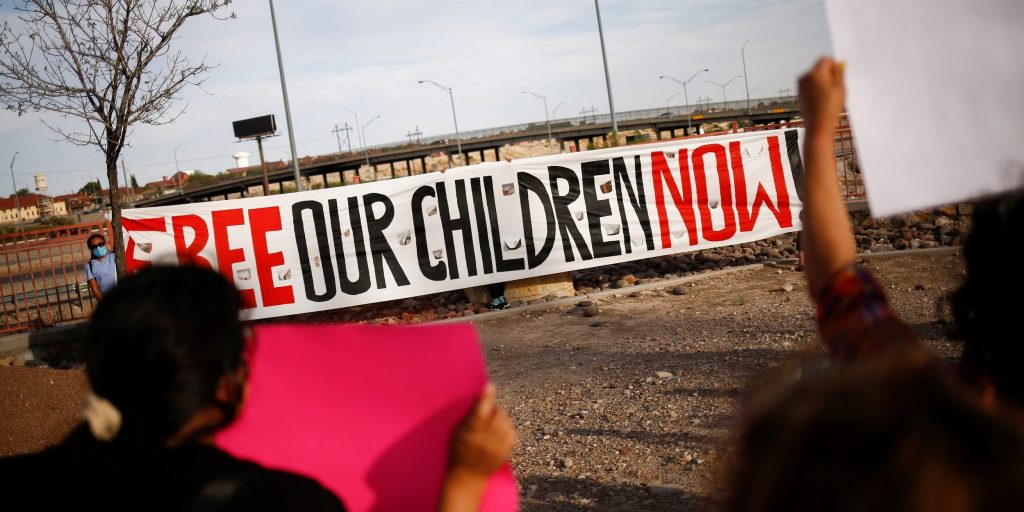
REUTERS/Jose Luis Gonzalez
- Fort Bliss in El Paso, Texas, is being used to hold hundreds of child asylum-seekers.
- Detainees have complained of inhumane conditions.
- The ACLU's Shaw Drake told Insider he saw hundreds of kids sleeping under the same tent.
- See more stories on Insider's business page.
At a military base in El Paso, Texas, hundreds of unaccompanied children who crossed the US-Mexico border to seek asylum are sleeping under one big tent. Some have been there for weeks – others were held there for months – as authorities worked to track down a relative who could take them out of government custody.
In recent court filings, children complained of insomnia, inedible food, and depression. One US lawmaker who visited the site, known as Fort Bliss, described the conditions as "absolutely unacceptable."
It was not supposed to be like this. President Joe Biden and his administration pledged to create a "humane asylum system" – one that abandoned images of kids in cages in favor of recognizing the legal right to seek protection from violence and repression.
Shaw Drake, a staff attorney at the ACLU of Texas, has twice visited the military base that now doubles as an emergency shelter. What he saw is too many children in one confined space, conditions that make it difficult for staff to keep track of what's even happening.
"Children shouldn't be held in those mass, dormitory-like situations," he said. "We certainly observed firsthand the challenges and concerns about the lack of case management and the amount of time children were spending at the facility."
Those conditions have led some children to attempt suicide and other forms of self-harm, according to testimony filed this month.
The Biden administration insists it is doing better - and in many ways it has, having reduced the number of kids in its custody and placing them in the care of family and friends. At one point, Fort Bliss housed around 5,000 children. This week, that number fell to fewer than 800, a product of the federal government ramping up efforts to place them with relatives and legal guardians.
By contrast, Drake said, the Trump administration allowed children to languish in Border Patrol facilities that were never intended to host them. At least five children died in them between 2018 and 2019.
"Border Patrol has a long history of holding people in inhumane conditions and abusing people in their custody, so it's certainly not an environment that is conducive for unaccompanied children to spend any time in," Drake said.
Emergency intake shelters like the one at Fort Bliss are an improvement, a fact that could have led to some complacency under the Biden administration - or at least a confidence that progress, amid a new surge in child asylum-seekers, was sufficient in the wake of the Trump administration, which itself had hollowed out the infrastructure for dealing with them.
"I think a big piece of it is a lack of commitment to the follow-through," Drake said. "It's very important to stand up these facilities and get kids out of Border Patrol, but the administration needed to move more quickly past to 'how can we actually reunite these children with their loved ones?'"
There is a need to provide shelter. "The government does have to do its due diligence to ensure that they're releasing the child to someone who is a bonafide relative or sponsor who's going to take care for that child appropriately," Drake said. But right now, that process can take days or weeks to even get started.
Beyond improving conditions at Fort Bliss and elsewhere, Drake said the search should begin as soon as a child is received by Border Patrol. On-site staff from the Department of Health and Human Services could even help some avoid further detention altogether.
"When children have - and many children do - direct parents or other immediate relatives waiting for them, they could be released directly without having to be transferred to an HHS facility," he said. "And that's something that, to this point, this administration and past administrations have failed to do."
Have a news tip? Email this reporter: [email protected]

